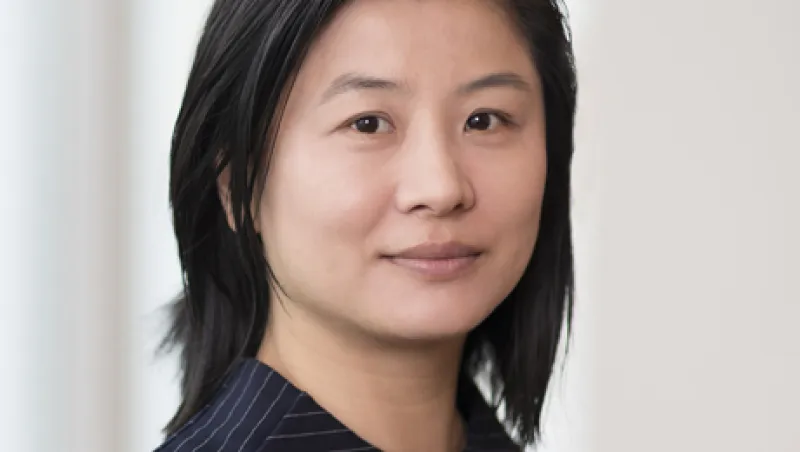In her previous role as a senior economist with China’s two largest brokerages, Hu Yifan spent much of her time expounding on the country’s prospects. Since she joined UBS Wealth Management late last year as CIO and chief economist for Greater China, Hu does far more listening.
“I meet many high-net-worth individual clients at my new role,” she explains, noting that they tend to be entrepreneurs. She says she has much to learn from these clients, many of whom want to preserve and grow assets for the next generation: “I listen a lot these days besides sharing UBS’s global perspectives and asset allocation strategies.”
These encounters leave Hong Kong–based Hu feeling optimistic. Though China’s economic expansion is slowing, wealth creation continues at an unprecedented scale. “We expect a golden decade of wealth management in China going forward,” Hu says.
China is home to some 2 million families with $1 million or more in investable assets, double the total of 2013, according to Hu; as of last year those assets were worth a combined $6 trillion. Most high-net-worth Chinese families grew wealthy by building manufacturing, high-tech and real estate companies and by investing in the stock market. They then accumulated more riches by taking their companies public on the mainland or in Hong Kong.
By 2020, China could have 4 million wealthy families who control as much as $15 trillion in investable assets, Hu reckons. “Many families want diversification in terms of assets and geographies,” she says. “Many want more than cash equities and cash income. Many want trusts, insurance and alternative investment. Many also are gaining risk appetite.”
When it comes to counseling clients on investing abroad, Hu brings international experience to the role. A native of Hangzhou, a picturesque eastern Chinese city that once was the capital of the Song dynasty (960-1279) and is now home base for e-commerce giant Alibaba Group Holding, she earned an economics degree from Zhejiang University, followed by a Ph.D. in the same field from Georgetown University in 2003. Staying in Washington, she worked as an economist at the World Bank Group and think tank the Peterson Institute for International Economics before returning home to take a post as an assistant economics professor at the University of Hong Kong.
Hu left academia in 2006 for investment banking, becoming chief international economist at Citic Securities Co., China’s biggest brokerage firm. In 2011 she joined Haitong International Securities Co., the global investment arm of China’s No. 2 brokerage, as chief economist.
Hu says she took her current job because she wanted to start putting her ideas to work. A member of UBS Wealth Management’s investment committees overseeing strategy in Asia and emerging economies, she’s gone from a market prognosticator to a sought-after adviser.
The vast sums of money leaving China — as much as $1 trillion in 2015 alone, by some estimates — may pose a threat to the country’s financial system, but Hu remains upbeat. “Capital flows are dynamic in China,” she says.
Although outflows of money put downward pressure on the renminbi, UBS continues to view China as an attractive investment destination for the rest of the world, she adds. Hu expects Beijing’s capital controls to be temporary: “China’s capital account openness is a long-term goal, and the government is actively encouraging more two-way movements of the exchange rate.”
For UBS and other Western financial institutions, Hu sees no shortage of upside. “With more Chinese money in the global markets, China will have a louder voice in international capital markets,” she says. “Managing Chinese money, both individuals’ and corporates’, is becoming a new opportunity for global wealth management players.”





